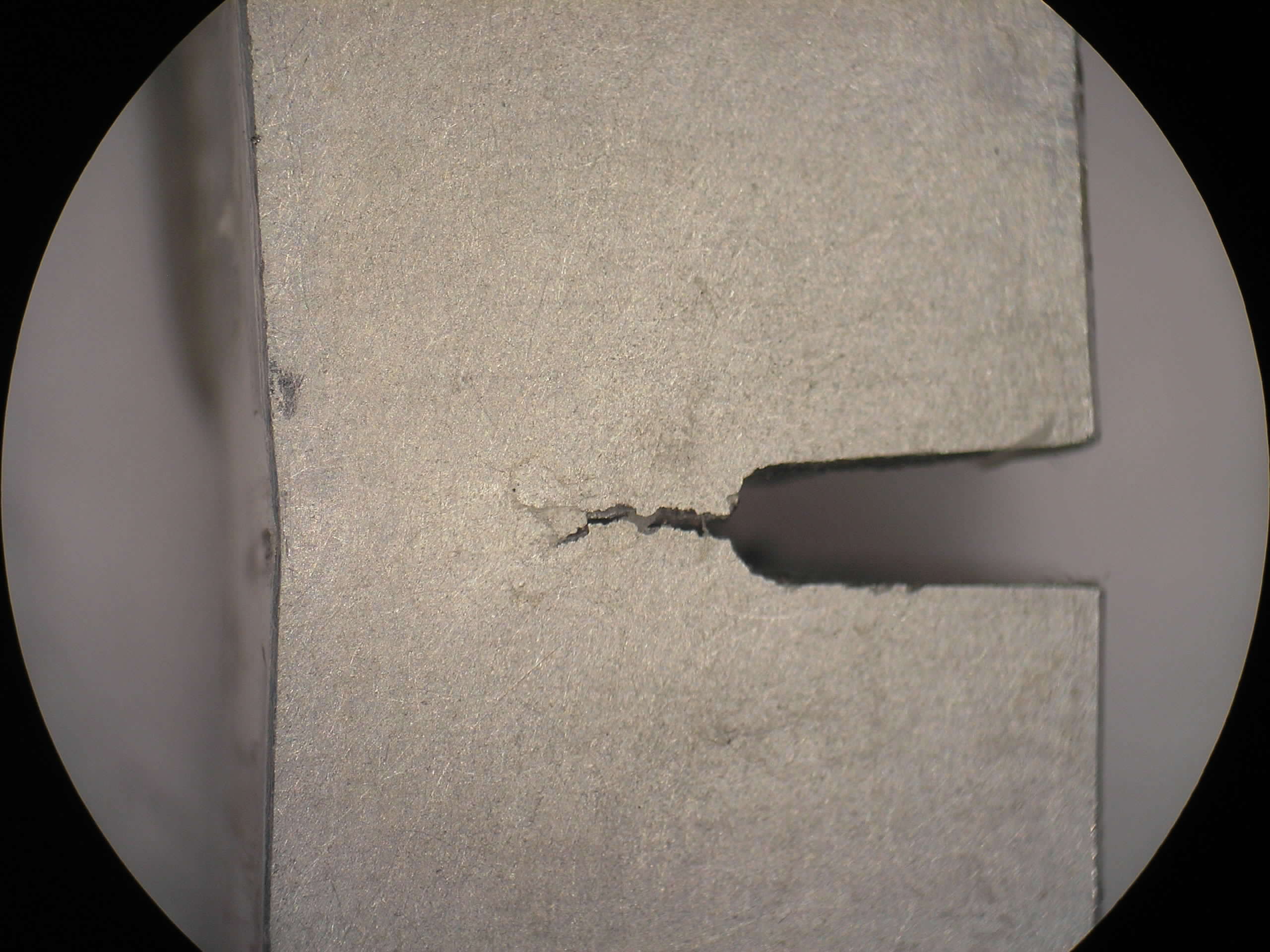ISO 13802 Instrumented Impact Testing of Plastics Precision and Accuracy Evaluation Test
The ISO 13802 instrumented impact test is a critical method used to evaluate the fracture toughness and resistance to sudden loading in plastic materials. This testing procedure provides precise data on the energy absorbed during the impact, which helps determine the material's ability to withstand shock without fracturing. Understanding these properties is essential for industries that demand high-performance plastics in safety-critical applications.
The test involves subjecting a notched specimen to an impact force using a standard pendulum or similar device. The instrumented setup captures detailed information about the mechanical behavior of the plastic during and after the impact event. This data includes peak load, load versus displacement curves, and fracture location and mode. Such insights are invaluable for quality control, material development, and regulatory compliance.
The precision and accuracy evaluation in this test ensure that the results are reliable and repeatable. By adhering to ISO 13802 standards, laboratories can provide data that is consistent with industry norms, facilitating better decision-making across various sectors. The test's application extends beyond merely assessing material properties; it also aids in optimizing manufacturing processes, enhancing product design, and ensuring compliance with international regulations.
The mechanical behavior of plastics under impact loading varies significantly depending on the type of polymer, its molecular structure, and processing conditions. This variability makes ISO 13802 a versatile tool for understanding how different factors influence a material's performance in real-world scenarios. For instance, this test can help identify whether changes in formulation or manufacturing methods affect the material's toughness and durability.
Another key aspect of the ISO 13802 test is its role in failure analysis. By analyzing the fracture mechanics data obtained from the instrumented impact tests, engineers can pinpoint the root cause of failures in plastic components. This information is crucial for preventing future defects and improving product reliability. The test's ability to provide detailed insights into how materials fail under sudden loading conditions makes it an indispensable tool for industries ranging from automotive to aerospace.
Implementing this testing method requires careful specimen preparation, which involves creating notched specimens that replicate the real-world stress concentrations encountered in components. Proper calibration and maintenance of the test equipment are also vital to ensure accurate results. The precision of the instrumented system plays a crucial role in capturing subtle differences in material behavior, making ISO 13802 an ideal choice for R&D departments focused on innovation.
The test's high level of accuracy is achieved through advanced instrumentation that measures key parameters with minimal error. This precision ensures that even small variations in material properties can be detected and analyzed. The test results are typically reported in terms of fracture energy, notched impact strength, and other relevant metrics that provide a comprehensive picture of the plastic's mechanical integrity.
In summary, ISO 13802 instrumented impact testing is a powerful tool for evaluating the toughness and resistance to shock loading in plastics. Its precision and accuracy make it indispensable for quality assurance, material development, and failure analysis. By providing detailed insights into how materials behave under sudden loading conditions, this test supports industries in optimizing product design, enhancing reliability, and ensuring compliance with international standards.
Why Choose This Test
- The ISO 13802 instrumented impact test provides detailed insights into a plastic's mechanical behavior under sudden loading conditions.
- This precision and accuracy ensure that the results are reliable and repeatable, making it an essential tool for quality assurance.
- It supports material development by identifying how different factors influence a material's performance in real-world scenarios.
- The test is indispensable for failure analysis, helping engineers pinpoint the root cause of failures in plastic components.
By choosing this test, you gain access to critical data that can enhance product reliability and support compliance with international standards. This information is invaluable for industries where high-performance plastics are used in safety-critical applications.
Competitive Advantage and Market Impact
The ISO 13802 instrumented impact test offers a competitive edge by providing detailed insights into the mechanical properties of plastic materials. This information is crucial for optimizing product design, enhancing reliability, and ensuring compliance with international regulations. By using this test, organizations can differentiate themselves in the marketplace by delivering higher-quality products that meet stringent safety standards.
Moreover, the precision and accuracy of ISO 13802 testing enable companies to stay ahead of regulatory changes and industry trends. This capability ensures that materials used in their products are up-to-date with the latest advancements in polymer technology. The test's role in failure analysis also helps organizations identify and address potential issues early, reducing costly recalls and improving customer satisfaction.
For industries like automotive and aerospace, where safety is paramount, ISO 13802 testing can be a critical factor in maintaining a competitive edge. By ensuring that the materials used in their products are robust and reliable, companies can build trust with customers and regulators alike. This trust translates into better market positioning and increased customer loyalty.
Use Cases and Application Examples
- Optimizing manufacturing processes to ensure consistent product quality.
- Enhancing product design by identifying optimal material properties for specific applications.
- Ensuring compliance with international regulations governing the use of plastic materials in safety-critical products.
- Identifying root causes of failures in plastic components, leading to more robust designs and longer-lasting products.
The ISO 13802 instrumented impact test is widely used across various industries. In automotive manufacturing, for instance, this test helps ensure that the plastics used in safety systems can withstand sudden impacts without fracturing. In aerospace applications, it ensures that components are reliable under extreme conditions.
For consumer goods manufacturers, ISO 13802 testing provides valuable data to improve product durability and enhance user experience. By understanding how plastic materials perform under impact loading, these companies can design products that last longer and meet high safety standards.





